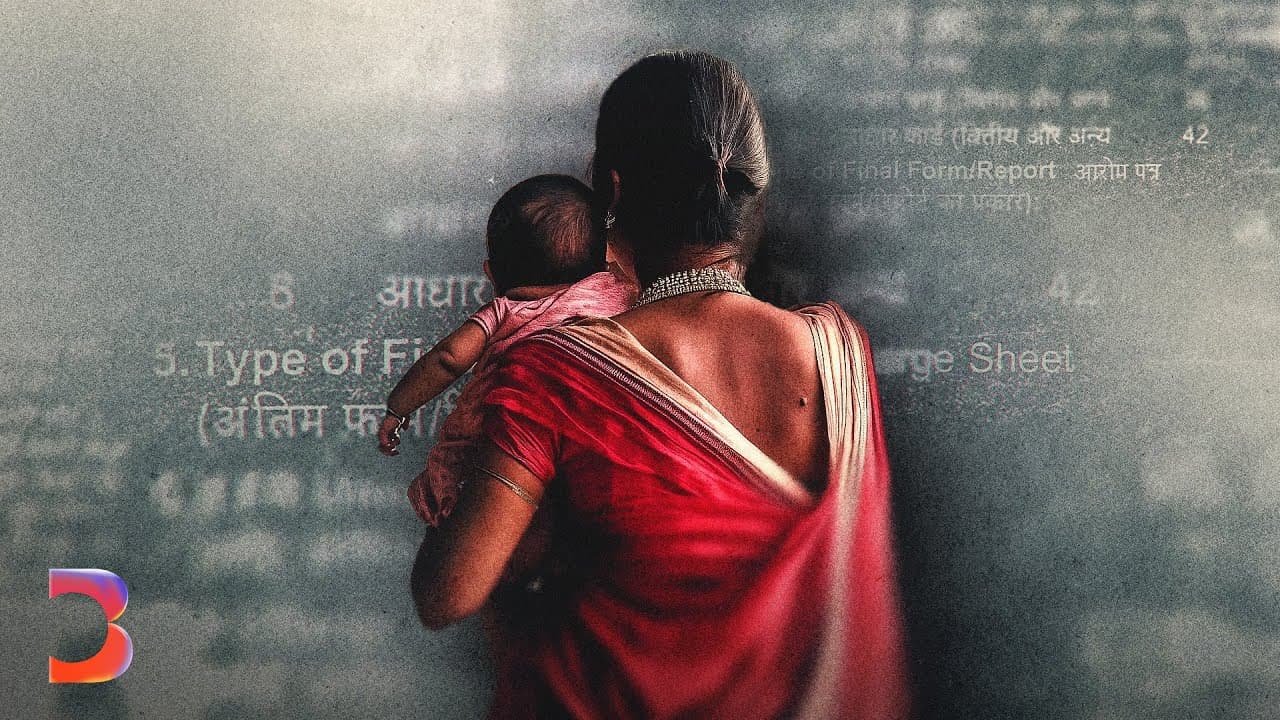Irretrievable: Inside India’s Fertility Underworld | Bloomberg Investigates
23 Dec 2024 (12 months ago)

Egg Donation and Exploitation in India
- As more women delay having children until later in life, they are increasingly turning to the fertility industry, leading to a growing market for IVF and egg donation worldwide, with India being one of the countries where the egg donation market is growing quickly (1m50s).
- In India, some of the worst cases of harm have surfaced, including cases of children being lured into selling their eggs, which is illegal and can be life-threatening (2m10s).
- The human egg has become a global commodity, with donor eggs providing hope to some families, but also having a dark side (2m57s).
- A case in Varanasi is just the tip of the iceberg, with hundreds of similar cases likely happening all over the country, but most people do not talk about it due to fear or being bought off (3m21s).
The Fight Against Sex Trafficking and Exploitation
- The issue of egg donation and exploitation of women and girls is linked to the broader problem of sex trafficking and exploitation in India (5m27s).
- Guria India, an organization founded by Ajeet Singh, is one of the pioneers in the fight against sex trafficking and sexual exploitation of women and children in India, working on rescue operations, education, vocational training, and legal interventions (6m2s).
IVF and Egg Donation
- Traditionally in India, it is the man's job to earn money and make decisions, while the woman's job is to make babies, and if a woman cannot have a baby, it is a huge social stigma (12m27s).
- IVF is a process where fertilization occurs outside the body, and some clinics use egg donation, where someone else's eggs are used, which can increase the chances of pregnancy (12m52s).
- The process of egg donation involves hormonal injections to stimulate the production of follicles, which are then extracted and checked for eggs under a microscope (13m7s).
- The risk of producing lots of follicles with superovulation is ovarian hyperstimulation syndrome, which can be severe (15m11s).
- Many patients undergoing IVF treatment may end up in the intensive care unit due to complications such as enlarged ovaries, fluid collection, and breathing problems, making it a challenging and nightmarish situation for IVF doctors (15m20s).
The Varanasi Case
- The Varanasi case was first reported in a local newspaper, but it didn't gain much media attention at the time; however, it raised concerns about the frequency of such incidents (18m32s).
- IVF cycles requiring donor eggs are a small but rapidly growing segment of the overall IVF market, often operating in an unregulated and unmonitored space (19m18s).
- Tens of thousands of egg retrievals occur in India every year, with the Varanasi case being one that has come to light (19m37s).
- The case began on October 17th, 2023, when the girl's mother filed a complaint at the police station, leading to an inspection of the clinic and the discovery of irregularities (19m48s).
- The inspection found that the girl had signed affidavits and consent forms in English, despite only speaking Hindi, and was using a fake ID, as she appeared to be underage (20m17s).
- The police drew up a first information report (FIR) about a week after the inspection, which led to the arrest of four people in mid-November (21m35s).
- The charge sheet, released on January 20th, named five people, including Seema, who was accused of helping the girl create a fake ID and accompanying her to the clinic (22m26s).
- Seema allegedly worked with another agent, Anita, who was responsible for creating fake IDs and affidavits, and two other men, including Seema's husband, who signed off as the girl's husband on the clinic forms (22m54s).
- The charge sheet did not mention the doctors or the clinic involved in the case, raising concerns about the industry players behind the incident (23m26s).
Trauma and intimidation of the victim's family
- The family of the girl was intimidated and traumatized, making it difficult for them to seek help and fight back (24m11s).
- Counseling the family was challenging due to their fear and trauma, and they required support to pluck up the courage to fight back (24m19s).
Exploitation of a Teenager at Nova IVF
- A network of middlemen facilitated the exploitation of a teenager who claimed to be 24 years old, allowing her to undergo egg retrieval at Nova IVF, a large IVF chain in India, despite not meeting the age requirement (26m20s).
- Nova IVF, backed by powerful American financiers, rose to prominence in the early 2010s during a period of unregulated growth in India's IVF sector (26m50s).
- Initially, Nova IVF had a strong reputation for quality services and high success rates, but as investors pushed for faster growth, the company changed hands, and former employees reported a decline in standards (27m9s).
- The police investigation into the case uncovered a criminal nexus involving Nova hospital, doctors, and others, but no arrests have been made, and the hospital remains operational (27m55s).
- The investigation also revealed that the group involved in the case had been sourcing donors for clinics across the city, forging paperwork for hundreds of egg donors, and supplying eggs to other major IVF chains (29m45s).
Lack of Regulation and Widespread Abuse
- The case is part of a larger operation, and it is unclear whether the police are investigating other individuals or plan to bring charges (30m17s).
- The eggs retrieved from the teenager may have been used to conceive children, who may not know the circumstances of their conception (30m58s).
- The lack of regulation in the IVF sector has led to widespread abuse and exploitation of poor women, particularly in the context of egg donations (31m42s).
- An IVF doctor expressed concerns about the industry's reputation and the potential for further exploitation, citing the need for stricter regulations and accountability (31m30s).